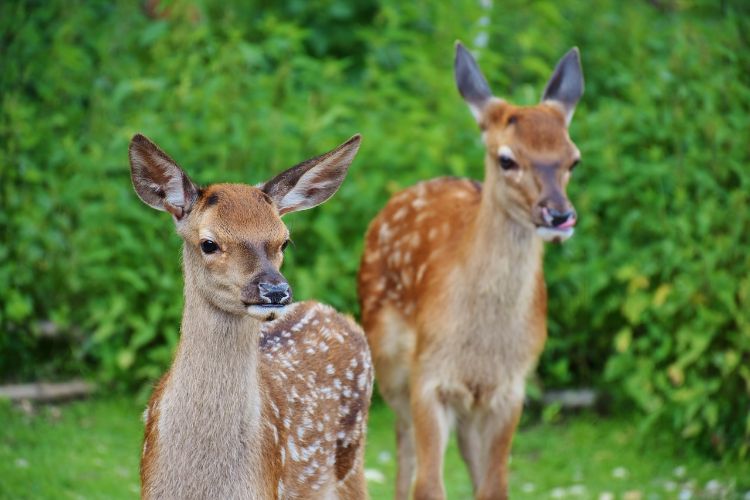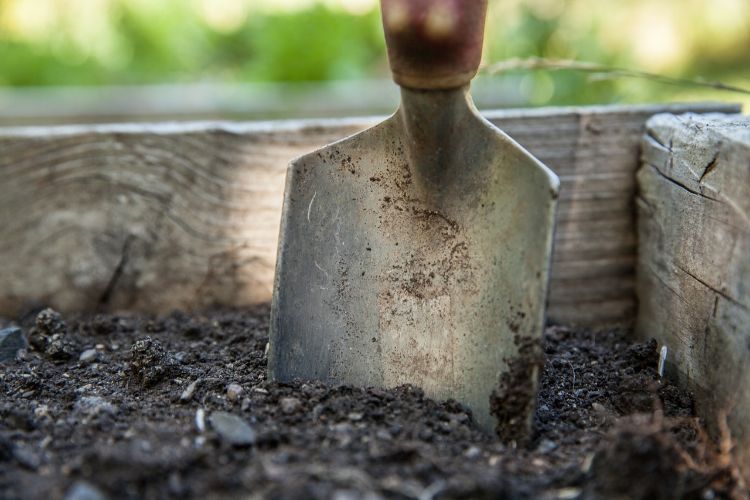In most homes, eggshells wind up in the trash. But if you're a gardener, eggshells truly are a treasure!
Saving eggshells goes a long way for the frugal gardener. From starting seeds to improving soil to deterring pests, they are an amazing resource. Keep reading to find out why you should be using eggshells in your garden.
Advertisement
1. Deter slugs
Cool, wet weather brings slugs out in droves, just in time to munch on newly sprouting green leaves. To battle them, try sharp, coarsely ground eggshells, which irritate the undersides of soft-bellied critters like slugs and snails. Ground eggshells are a great alternative to diatomaceous earth. Simply sprinkle them on top of the soil around vulnerable plants, and reapply after a rain.

2. Deter deer
Everyone knows eggs have a distinct odor. Fortunately for gardeners, deer really don't like the smell of eggs. Try spreading crushed eggshells around the garden to help keep deer at bay.

3. Promote healthy tomatoes
Blossom-end rot, caused by calcium imbalance, is common in tomatoes, peppers and eggplants. Since eggshells contain a good portion of calcium, they make a great fertilizer for plants prone to blossom-end rot. Try crushing four dried eggshells and adding them to the soil around the plant at the time of planting. As the eggshells break down, the plants will take up the calcium.

4. Add minerals to soil
Eggshells aren't only a great addition to soil around tomatoes, peppers and eggplants. Because of their high mineral content, they are a great addition to soil in general. Sufficient calcium levels in the soil ensure healthy plant cells overall. Eggshells also contribute magnesium and other minerals to the soil. Balance is the key, however. It's always best to test your soil before applying fertilizer of any kind.

5. Compost
Eggshells are a great addition to compost. It's helpful to clean, dry and crush them beforehand so they break down quickly.

6. Start seeds
Save egg cartons and eggshells to use as starter pots for your seeds! Clean and boil the eggshells first, and carefully puncture the pointed end of the egg to allow for drainage. Fill eggshells with premoistened seed-starting mix, and place them back in the egg carton. Then plant your seeds. Once seedlings are big enough, crack the eggshells to transplant to your garden. The eggshells can be crushed and added to the soil or added to your compost bin.

7. Bring down soil pH
Eggshells can be a great way to improve acidic soil for the home gardener. Although not as effective or fast-acting as lime, Iowa State University found that eggshells do increase soil pH over time. It's best to test your soil's pH before taking any action.

8. Improve soil drainage in planters
Eggshells are a great way to improve drainage in container plantings. Instead of rocks, try adding broken eggshells to the bottom of a planter to allow for drainage. Not only will the container be lighter and easier to handle, but there will be improved air circulation as well. Plus, the eggshells will break down and contribute nutrients to the plant. You'll have to replace the soil and eggshells every season or two, but this is generally a best practice anyway.

9. Keep cats away
Do you have a neighborhood cat that enjoys using your garden bed as a litter box? Try eggshells as the cure. Stepping on broken eggshells should be enough to keep the cats out.

10. Compost tea
Admittedly, eggshells can take a while to break down in the compost bin. So making compost tea using eggshells might be more satisfying. Try boiling a gallon of water and adding 10 to 20 clean and dry eggshells to it. Let the eggshells steep overnight, then strain the liquid. The water, now infused with nutrients such as potassium and calcium, makes a great liquid fertilizer.

11. Remove splinters
Eggshells are beneficial not only to the garden but also to the gardener! In the garden, minor injuries are bound to happen. And believe it or not, the membrane of an egg, found on the inside of the shell, is said to have some pretty incredible healing abilities. Try putting this wet membrane on splinters and cuts to speed healing.

Levent Konuk / Shutterstock
12. Feed birds
Birds help control insect pests in your garden, so it's a good idea to invite them over! Try spreading pieces of clean, dried eggshells around your yard. You could mix them with birdseed, as well. Birds, especially females after laying their eggs, are attracted to the calcium supply.
Advertisement


